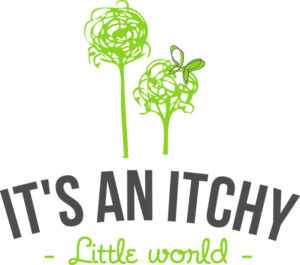The Best Eczema Diets for Your Skin

For those who suffer from eczema-prone skin, it’s important to think about what foods you put into your body. This is because diet and skin health are closely linked. In other words, what you eat may be the difference between clear skin and a bad flare-up. Read on to discover the best eczema diets for your skin.
Please keep in mind that although what we discuss in this post can relieve eczema, we are in no way medical professionals. If you’re experiencing severe eczema symptoms like an infection, it is best to seek medical advice immediately.
The Link Between Eczema and Diet
While eating certain foods does not “cause” eczema, it can definitely have an effect on the health of your skin. This heightens the importance of maintaining an eczema-friendly diet.
To better manage your overall skin condition, eating anti-inflammatory foods may improve eczema symptoms whereas inflammatory foods may trigger a bad reaction. Just remember that not everyone will have the same reactions or experience flare-ups to the same foods.
Foods to Avoid
As eczema is an inflammatory condition, it stands to reason that it’s best for your body to avoid inflammatory foods. Some common culprits for triggering flare-ups include dairy, gluten, citrus fruits (such as lemons, grapefruit, and limes), and shellfish. Soy products, nuts, and different spices, such as vanilla, cloves, and cinnamon, are also known to worsen symptoms.
Foods that May Help
On the other hand, anti-inflammatory foods can help eczema-prone skin. These include foods that are high in probiotics, such as miso soup, sourdough bread, and tempeh. Foods such as salmon or herring are also good for eczema as they contain high levels of omega-3 fatty acids. This gives them anti-inflammatory properties, making them beneficial for those suffering from eczema.
Finally, since quercetin is a powerful antioxidant and antihistamine, foods such as apples, blueberries, kale, broccoli, and spinach can improve symptoms instead of exacerbating them.
Finding your Food Triggers: Elimination Diet
Keep in mind that although we condemn the inflammatory foods mentioned above as “common culprits”, everyone is unique and may experience different reactions to these food products. In short, what triggers eczema in someone else may not do the same to you. This makes it important to understand your body. If a certain food is triggering your eczema, a reaction will likely occur within 6-24 hours of consuming the food. However, it’s also possible that the reaction may be delayed.
If you don’t know which foods are triggering your flare-ups, we suggest trying an eczema elimination diet. This involves removing certain foods from your diet for around 60 days and then slowly reincorporating them back in. Monitoring the results can help you pinpoint exactly which foods are triggering your eczema. As always, speak to your doctor first to make sure you or your child are still getting all essential nutrients.
Best Diet for Eczema
Autoimmune Paleo: The Autoimmune Paleo (AIP) is a modified version of the Paleo diet. It’s designed to stop immune disorders and send them into remission. The goal of this diet is to remove common food triggers in order to lower overall inflammation. It focuses on underlying inflammation stemming from the gut. To learn more, we recommend the following resources:
The Paleo Approach: Reverse Autoimmune Disease and Heal Your Body
The Autoimmune Wellness Handbook: A DIY Guide to Living Well with Chronic Illness
The Autoimmune Paleo Cookbook: An Allergen-Free Approach to Managing Chronic Illness
Real Plans: A great tool to make your meal planning super simple is Real Plans. This meal planning app allows you to easily modify your meal plans to match your diet. It’s completely customizable for people with food allergies or sensitivities, so you can make sure you see only recipes that fit with your elimination diet.
References:
https://www.healthline.com/health/skin-disorders/eczema-diet
FROM: Eczema

A good diet is a key to solution of lot of health problems. People should be very careful when they are dealing with issues like eczema, other skin issues, stomach issues etc. Thank you very much for providing this post here. This diet will help a lot of people. Keep sharing this more and more!
Dental clinic Manteca CA
Understanding that diet and eczema are correlated can be a huge revelation for many! When I first experienced it, my diet was the last thing on my mind as I tried various creams and elimination of triggers, still with no solution. Looking more so into it now, I can understand how after eating certain things, my skin gets better or worse. Also, I like that you noted disclaimers, such as diet does not fix eczema, and everyone will react differently. By giving people information without providing a false sense of hope is valuable in this instance, as eczema can be such a tricky condition to get a hold of. The more circulated this information is the better and doing it so simply for everyone to understand, was a great bonus while reading this article. It’s interesting to note how important diet and health problems are related. I will be looking into trying some of the recommended diet strategies and seeing how they work for me. I have personally found chilli is a massive trigger for my face eczema, is there any particular food that you found to trigger your own eczema? Also, while you are speaking about these recommended diet strategies, have you tried them yourself and how much success did you have with them?